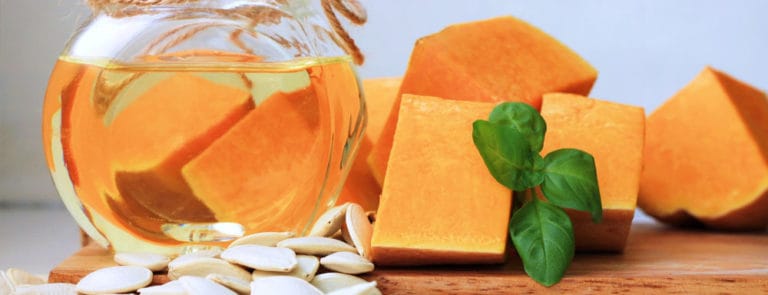15% off £40
Code:QUICK
Good foods for a healthy prostate

Did you know one third of men over the age of 50 have prostate troubles? Thankfully, there are foods you can eat to help support your prostate health. Read on to find out what they are.
One third of men over 50 have trouble with their prostate, but eating certain foods can help support your prostate health
An enlarged prostate is very common in men over 50 – nearly all men in their 70s are thought to have some symptoms of an enlarged prostate.1
These include needing to pee more often, especially at night; feeling that you haven’t emptied your bladder properly; a sudden urge to pee; weak urine flow.2
But making some simple changes to your diet could help protect against an enlarged prostate, also known as BPE (benign prostatic enlargement) or BPH (benign prostatic hyperplasia).
Up your fruit and veg intake
Eating healthy food can help keep your weight down, which in turn is good for your prostate. Being overweight can make your symptoms worse, while some studies show that men with obesity or diabetes are more likely to get BPE.3 Increasing the amount of fibre in your diet can also help avoid constipation, which puts pressure on your bladder, intensifying that urge to pee.4 Handpicked content: Why fibre’s a must for your gutEat more tomatoes
Tomatoes contain a powerful antioxidant called lycopene, which scientists say has a beneficial effect on prostate health. A 2016 review of 67 studies led by Bart’s and The Royal London Hospital concluded that lycopene can slow down enlargement of the prostate,5 which may help prevent those night-time trips to the loo. Your body absorbs lycopene much more easily once it’s been cooked – especially with a little oil6 – so try making your own pasta sauce or roasting some tomatoes to go in a salad. Handpicked content: How saw palmetto could help prostate healthGo for green tea
Tea and coffee can act as diuretics, making you need to pee more often. But green tea may help relieve the symptoms of BPH. According to one study published in the journal Therapeutic Advances in Urology in 2014, men given a blend of green and black tea every day for 12 weeks were better able to empty their bladder, had less inflammation and a better quality of life after just six weeks.7Drink pomegranate juice
A study presented at the annual meeting of the American Urological Association in 2009 revealed that men drinking just one glass (8 ounces) of pomegranate juice a day experienced a four-times slower growth in prostate-specific antigen (PSA).8 PSA is a protein produced by prostate cells, so an enlarged prostate = more prostate cells, which may then lead to higher levels of PSA in the blood.9Advice is for information only and should not replace medical care. Please check with your GP before trying any remedies.
Shop our Vitamins & Supplements range.Sources
1. Prostate Health UK. Facts about enlarged prostate or benign prostatic hyperplasia (BPH). Available from: https://www.prostatehealthuk.com/prostate-cancer-information/enlarged-prostate-bph 2. Prostate Cancer UK. Enlarged prostate. Available from: https://prostatecanceruk.org/prostate-information/further-help/enlarged-prostate 3. As above 4. Prostate Cancer UK. Enlarged prostate treatment. Available from: https://prostatecanceruk.org/prostate-information/further-help/enlarged-prostate/enlarged-prostate-treatment 5. Patel H, et al. Does Oral Lycopene Reduce Benign Prostate Enlargement/Hyperplasia (BPE/BPH)? Available from: https://www.omicsonline.org/open-access/does-oral-lycopene-reduce-benign-prostate-enlargementhyperplasiabpebph-occrs-1000108.php?aid=68027 6. Prostate Cancer UK. Prostate information – your diet and physical activity. Available from: https://prostatecanceruk.org/prostate-information/living-with-prostate-cancer/your-diet-and-physical-activity#can-any-foods-help-with-my-prostate-cancer 7. Katz A, et al. A green and black tea extract benefits urological health in men with lower urinary tract symptoms. Available from: https://www.ncbi.nlm.nih.gov/pubmed/24883106 8. Harvard Medical School. Pomegranate juice may slow prostate cancer progression. Available from: https://www.harvardprostateknowledge.org/pomegranate-juice-may-slow-prostate-cancer-progression 9. Everyday Health. What a High PSA Level Means if It’s Not Prostate Cancer. Available from: https://www.everydayhealth.com/prostate-cancer/non-cancerous-reasons-your-psa-levels-are-high.aspxRelated Articles
Shop by wellness goal
Sign up for exclusive offers
Plus, get expert advice to support your health & wellness straight to your inbox when you sign up to Holland & Barrett emails.
Read our
privacy policy













